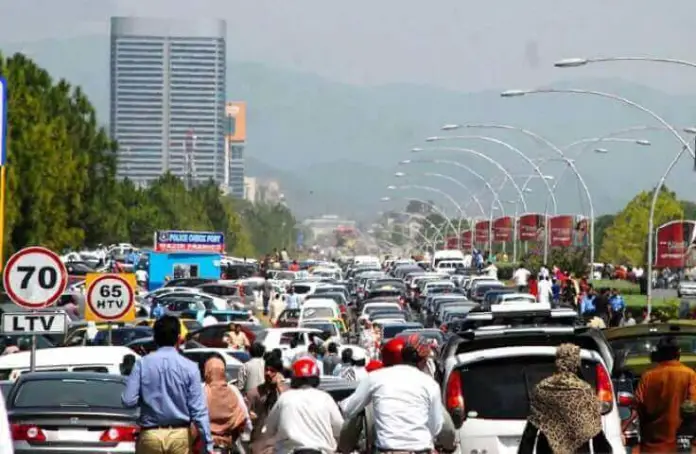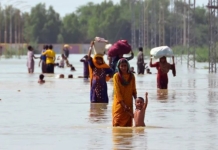In Pakistan, the nation’s political panorama is not solely defined by the electoral process. Beyond the cycle of elections, the appointment and extension of influential figures often shape the country’s trajectory, arguably as much as, if not more than, the electoral outcomes themselves. The intricate dance between civilian leaders and influential figures is deeply ingrained in Pakistan’s political narrative.
This dynamic is marked by shifts in power, cooperation, and confrontation, each contingent on the personalities at the helm of both civilian and establishment domains. Indeed, Pakistani politics is a multifaceted arena where power is elusive and often jealously guarded. At the heart of this political drama lies a struggle for dominance reminiscent of epic tales. The quest for power is relentless, with contenders vying for control in a narrative that unfolds with dramatic twists and turns.
Presently, this power struggle manifests in a series of calculated manoeuvres aimed at undermining the Pakistan Tehreek-e-Insaf (PTI), the former ruling party. Recent events have seen former Prime Minister Imran Khan facing severe legal repercussions, including hefty sentences and disqualification from public office.
While these actions have drawn criticism for their haste and severity, they also hint at a larger strategy of political disempowerment. The PTI finds itself besieged on multiple fronts, with its leaders and supporters facing a barrage of legal challenges and restrictions. The aftermath of protests in May 2023 further exacerbated tensions, leading to widespread arrests and accusations of subversion.
In this climate of uncertainty, the PTI struggles to mobilize its base, hampered by restrictions on public gatherings and media censorship. Yet, the party adapts, harnessing the power of social media and technology to maintain its presence in the political arena. However, even amidst these challenges, the PTI faces a critical blow with the loss of its election symbol, the cricket bat.
This decision not only complicates the party’s electoral prospects but also deepens the sense of disarray within its ranks. As the electoral landscape evolves, alliances shift and loyalties waver. Political players navigate a complex web of power dynamics, often at the expense of democratic principles and fair play.
Pakistan finds itself in a precarious position within South Asia, confronting not only economic instability but also broader social and governance dilemmas. Its standing on key global indices reflects a concerning trend: its ranking on the Human Development Index signifies its placement in the low human development category, while its position on the Global Competitive Index underscores significant challenges in competitiveness.
Moreover, Pakistan’s low ranking on the global Rule of Law Index, only marginally better than Afghanistan, accentuates systemic weaknesses in legal governance. The nation grapples with pervasive political and economic uncertainties, manifesting in soaring inflation rates and a staggering 40 percent of the populace languishing below the poverty threshold. The absence of a stable and predictable environment exacerbates the formidable challenges Pakistan faces, often resulting in either neglected issues or misguided short-term policy measures.
In the realm of Pakistani politics, the pursuit of public service takes a backseat to self-interest, resembling more a transactional enterprise than a civic duty. Power, accompanied by its attendant privileges, becomes the currency of governance, often wielded to suppress dissent, and consolidate personal wealth. The prevailing system lacks the mechanisms necessary to address issues of social justice, with incumbent parties exploiting state resources to further their agendas while marginalizing political adversaries.
The sustainability of Pakistan’s current political and economic framework is increasingly called into question. Historical attempts to address these challenges have yielded little success, highlighting the urgent need for substantive reform. Against a backdrop of profound uncertainty, the spectre of contested elections looms large, posing a grave threat to national stability and cohesion.
As Pakistan confronts a formidable array of obstacles, the path forward appears fraught with peril. Without meaningful reform and a departure from entrenched practices, the nation risks prolonged periods of hardship and discord. The years ahead are likely to be fraught with difficulty, underscoring the imperative for decisive action and genuine commitment to systemic change. The ebb and flow of political fortunes underscore a central paradox of Pakistani politics: a cycle of victimhood and oppression, where today’s adversaries may become tomorrow’s collaborators.
Amidst the complicated framework of Pakistani politics, change remains elusive. Power dynamics continue to shape the course of events, leaving little room for genuine reform or reconciliation. As the struggle for supremacy unfolds, the fate of Pakistan’s democratic experiment hangs in the balance, with the spectre of authoritarianism looming ever larger on the horizon.







